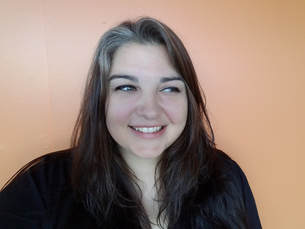 Name: Kara McCafferty Position: Clinical Intervention Specialist- ARISE High School. What led you to your current position? I have a passion for working with this age group. After completing my practicum providing mental health services for the Peralta Community Colleges it really confirmed that adolescents and young adults are the population I most enjoy serving. I chose to become a therapist so that I would have the opportunity to support clients with direct service and ongoing relationship building. Fun Facts? I’m proficient in American Sign Language. I love video games, gardening and all things gothic and dark wave. I played collegiate volleyball. I have two kitties: Wednesday and Zelda. What does your average day look like? Have you ever seen the movie “The Perfect Storm”? Just kidding. My day always involves one on one sessions with students, which is what I look forward to most. The day also always requires a lot of orchestrated team work within our Adelante student support team. Often I am in contact with parents and stakeholders, participating in meetings, connecting students and families to support services, and responding to crisis needs within the student body. I collaborate with school administrators and I facilitate professional development modules to support capacity building within the school. I am lucky to have excellent supervisor support and a great group of clinicians to brainstorm with and learn from in supervision, both of which help me feel connected and supported throughout the week. In a typical day, I hear Stacey Abram sing at least once, which is another high point in the day for sure! Why do you do this work? When I was in high school one or two positive relationships with adults in my life made a huge difference for me. I understand the way one relationship can subtly plant a seed, or powerfully turn a tide.
This work requires constant self-assessment, personal growth, problem solving, relationship building and life-long learning. Having a career that demands those things positively challenges me as a human being. I am also passionate about the East Bay, and connecting, advocating, and growing with all of the amazing variety of intersecting identities and communities here. What hope do you have for the future of All-In? I hope we can continue to provide quality people, and continue to engage in fruitful partnerships, that provide opportunity for impactful relationships to happen for ALL of our youth and families. I also hope we can foster enough capacity building within school systems so that none of our youth who are struggling get missed or left behind. I thought it would be important to highlight these skills given they are a common “buzzword” among educational and psychological circles alike. The research discussion around executive functioning is likely not a fad, but instead an indication of the advancement in the field of education, psychology, and neuropsychology. Within the field of school psychology, executive functioning skills can be assessed and help to shed light on an individual’s intellectual and cognitive profile of strength and weaknesses; however, these skills are a compilation of abilities and weaknesses are not considered a disability on their own. Instead, weaknesses in this area are a set of weaknesses in a key set of mental skills such as task initiation, working memory, cognitive flexibility, inhibitory controls, mental shifting, and self-monitoring to name a few. In essence, executive functioning skills support individuals in the mental planning, organizing, and execution of tasks to completion. In the classroom and at school, these tasks support students in managing and regulating their thoughts, actions, and emotions in order to get things done. If there is suspicions that a child may be experiencing executive functioning challenges any task requiring the above skills could be a challenge. Such things as taking cleaning ones bedroom to completing a school project can pose a challenge to a child with executive functioning difficulties. Basic tasks such as:
The image below illustrates the process of how executive functioning works. If executive functioning is working well for an individual this process will likely take just a few seconds to analyze a task and determine all the steps required to see that task through completion. On the contrary, if a student is struggling with this area of processing even a simple task can present challenges. Blog post written by: Meka Tull, Director of School Partnerships  Name: Laurie Kindel Position: Clinical Intervention Specialist at Lighthouse Community Public School 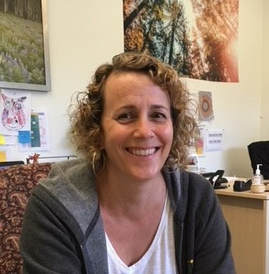 What led you to your current position? A lifetime! This is my third career. I used to be a big-firm litigation lawyer and did my pro bono work with refugee youth. Through that work I became interested in the psycho-social aspects of immigration for youth and that led me to the fields of psychology and social work. Now I have a PhD in psychology and just completed my MSW. My dissertation research involved mural making with Central American unaccompanied minors. During that project I worked with an interpreter who told me about Seneca. Last year I was an intern at Lighthouse and now I’m happily here as a Seneca employee. Fun Fact/Quote? When you’ve worked hard, and done well, and walked through that doorway of opportunity, you do not slam it shut behind you. You reach back, and you give other folks the same chances that helped you succeed. - Michele Obama. What does your average day look like? I get up way too early and do some form of exercise. I have yet to experience an average day at Lighthouse. It’s always different but I usually see three or four youth for regularly scheduled sessions. The rest of the time is spent collaborating with the school community, doing crisis intervention, and building rapport with students. When I get home I try to leave it all at the door. I spend a lot of time on news sites and Twitter because I am a political junkie and these days . . .yikes! I make sure to spend the last hour before I go to sleep (also way too early) decompressing with music or reading non-controversial fiction. Why do you do this work? I’m loaded with unearned privilege. I can’t imagine not using it for the benefit of others. What hope do you have for the future of All-In? That we continue to grow this work and reach as many youth as possible. I see firsthand how high schoolers benefit from the All-In model so I’d love to see more high schools added. When asked to reflect on my experience as an intern with All-In, I thought, “Well I don’t really know anything yet!” This immediately brought to mind one of the teachings of a local Zen school I have spent some time with, which is: “Don’t know.” Here is a short explanation of the concept: We have this radical teaching … admitting the truth that we don’t know and go from there. If we really live that, it changes everything. Don’t-Know doesn't mean stupid. It means What Is It? Suddenly our eyes are open, we’re vibrating with energy because we wonder, “What?”… rather than, “Oh yeah, I know that!” - Empty Gate Zen Center This place of not knowing seems to me to be very much in alignment with Unconditional Education ideal of Curiosity. “Since every student, family, teacher and school is unique, sometimes even the tried and true tricks of the trade will fall short. In these instances, Unconditional Education is the process of engaging in relentless CURIOSITY, the willingness to revise previous notions of what a student needs and ingenuity to develop out-of-the box solutions when initial efforts have not produced the desired results.” This relentless curiosity is certainly an element I try to bring into my work every day, and as an intern, it’s a natural part of my experience. Practically speaking, there is a lot that I don’t know. Academically, I have hardly scratched the surface of the world of information that will make me the therapist and social worker I want to be. Professionally, I’m at the beginning of this part of my career and most days feel like being on a bike with no training wheels for the first time; wobbly but rewarding. I am continuously learning and developing new skills, and with this I am increasing my confidence and always striving to be better today than yesterday. That being said, not knowing is an experience I hope to continue to cultivate throughout my career. Not knowing creates space for creativity and compassion and can be a remarkable platform for healing. I’m grateful to be a part of a program that incorporates this into our work with students. By making the commitment of Unconditional Education to our students, I believe we are also making a commitment to ourselves, which will allow each of us to contribute in the most effective and authentic way possible. I’m proud to be on this team!  Blog post written by: Brittany Allinger, Clinical Intern This month's Seneca Value highlight is CURIOSITY. My favorite!! I've decided to write about an inspirational evening I had this month, and link to a short video about curiosity. I use quotes to capture some of a conversation I heard, but this is from memory and not actually verbatim. This conversation will be broadcast on the City Arts & Lectures series on NPR--I encourage you to seek it out and listen when it's released. On a recent Wednesday night in early November, my cousin Naomi surprised me with a free ticket to join her at a City Arts & Lectures event in SF. The conversation would be with Ta-Nehisi Coates, author of Between the World and Me, The Beautiful Struggle, numerous articles for The Atlantic and his most recently published book We Had Eight Years in Power. I was so excited! I bundled up on the first rainy day of the season and finished Between the World and Me while riding BART into the city. What transpired over the course of Ta-Nehisi's interview and question/answer section was inspiring, thought provoking, real and reflective. He recalled his own adolescence, of discovering hip hop and having a world open to him that captured the truth of his lived experience, for the first time, and in a way that inspired him to become a writer. In 90 minutes Ta-Nehisi told of his rage, disgust, passion and curiosity about our nation's false historical narrative, the ways in which we routinely gloss over the atrocities of our violent, racist past as if everything's better now, and then point at and blame the very people who've been held down and "othered" by that history because they show, they live the understandable marks of that trauma. The interviewer Alexis Madrigal, also of The Atlantic magazine, asked Ta-Nehisi "What is exciting your curiosity these days?" Without missing a beat, he shared that now that he has experienced some fame and success, he is asking himself the question "how will I stay true to what is important to me? None of this can become rhetoric, I need to stay connected to my roots. But I am invited to elitist events, invited to be flown here and there to frolic--how can I accept such an invitation?" Ta-Nehisi inspired me with this curiosity. His ability to turn his questioning on himself, to somehow observe the changes in his life but simultaneously push against those changes, and stay open and aware, demonstrates his integrity and a fierce curiosity about his and others' experiences. In our work with schools we are often tasked with staying open and curious when things get really tough; but here is a man who also recognizes how important it is to stay equally curious when things get easier--he appears to be fueled at all times by the heat of CURIOSITY and the desire to be awake and aware no matter what the circumstances. Follow this link to hear a short piece from Ta-Nehisi Coates on Asking Questions That Have No Answers. Enjoy, and I encourage you all to keep wondering. https://youtu.be/JIgpNuCy-eA Blog post written by: Emily Marsh, Director of Clinical Intervention  Name: Ana Martinez Position: Student Support Assistant 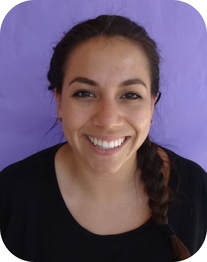 What led you to your current position: My sister who is Claudia Martinez said to apply for the South Bay SSA position because they needed staff bilingual in Spanish and at the time I was working at Pathfinder. Fun Fact/Quote: A student this year told me this, “F-U……N, FUN! You thought I was gonna spell the other word huh?” What does your average day look like: I spend all day with one student in a collaborative classroom. My role is to provide support in self-regulation techniques which can be meditation, art, or active movement activities. Why do you do this work: This work presents challenges that need solution seeking strategies. This work pushes you out of your comfort zone and it relies heavily on teamwork and advocating. What hope do you have for the future of All-In? I hope that it continues to expand and provide services to other schools to have partnerships that are stronger and reaching out to more communities. One of the key components in serving children with disabilities is data collection. With data collection and analysis, it becomes easier for educators and other professionals to understand behavior patterns and to measure the progress of the child. In most cases, a child will interact with different teachers and specialists each week. Keeping accurate data that highlights behaviors, responses, and progress enables everyone involved to see what is working and to assess which types of prompts or teaching methods work best for the individual child. This makes it much easier to teach the child using the most understandable and effective methods possible. Another benefit of proper data collection is that it allows everyone who teaches the child to stay on the same page. Parents and educators work hand in hand to shape behaviors and to teach concepts, and data analysis sheets highlight what is being done as well as what is truly working. In order to know what is truly working it is important to utilize the correct procedures for collecting data through direct observation. The most commonly used procedures for school settings on collecting data include event recording, interval recording, duration recording, latency recording, and momentary time sample recording. ABC Charts are also commonly used. Below is a list of what each procedure is used for:
MEASUREMENTS OF BEHAVIOR. Retrieved from https://brandman.blackboard.com/bbcswebdav/pid-9582336-dt-content-rid-185186  Blog post written by: Bria Lee, Student Support Assistant Virginia Woolf, A Room Of One's Own There is no gate, no lock, no bolt that you can set upon the freedom of my mind. Upon thinking about what to write for the blog, I stumbled upon this great article and videos from St. Louis, Missouri. This particular article explains how professional artists and African American Urban Youth ages 15-24 are working together to elevate our youths voices so that they are heard in these drastic times of trauma in our lives and neighborhoods. Not only does this movement support learning and reading, it also helps these students publish their material in which they make money from their own work. Take a look at the article and videos from EDSURGE to follow this great movement. I hope they expand to the BAY AREA!!! Blog post written by: Darrell Burns, Assistant Director of Behavioral Intervention |
Authors:School Program Partnerships We're Hiring!Interested in joining our School Program Partnerships' Team? Check out our open positions below!
Categories:
All
Archives
May 2024
|

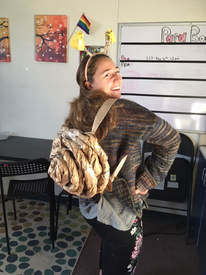
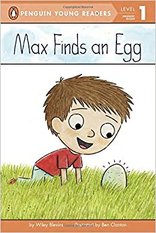


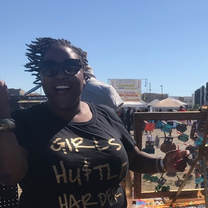
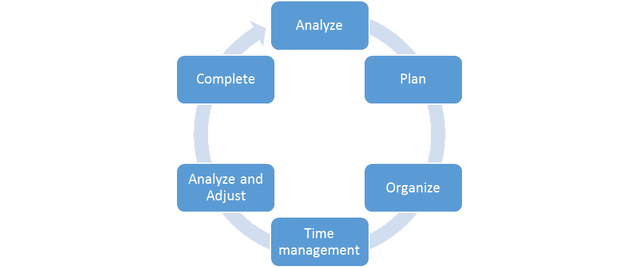



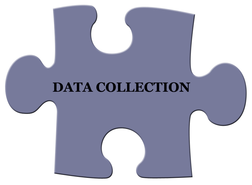
 RSS Feed
RSS Feed